本期为大家推荐的内容为论文《Towards niche market for shared mobility: Identifying heterogeneity of potential early adopters to use shared electric bikes in a Chinese mega city》(走向共享移动的利基市场:识别中国大城市使用共享电动自行车的潜在早期采纳者的异质性),发表在Transactions in Urban Data, Science, and Technology期刊,欢迎大家学习与交流。
共享出行在疫情、立法动荡中持续发展,并指向具有更广泛共享服务的潜在市场。随着全球共享出行领域的持续增长,共享出行服务的细分,即利基市场,正受到越来越多的关注。然而,大多数研究主要关注早期采纳者从传统交通模式转向共享出行,而对专业化和利基共享出行服务的转变关注较少。为了填补这一空白,本研究旨在探索现有市场中不同交通群体潜在早期采纳者的异质特征,特别是共享电动自行车。本研究的问卷针对的是中国大城市深圳的1,034名居民,时间为2020年3月至4月,在该市共享电动自行车计划正式启动前。研究采用二元逻辑模型和文本情感分析,提出了一个全面的分析框架,以理解潜在早期采纳者的群体敏感识别。结果显示,年龄、汽车拥有率、通勤时间和对潜在计划的信心水平是解释所有受访者愿意采用共享电动自行车的四个重要变量,无论他们现有的主要交通方式是什么。然而,对于具有不同出行偏好的子群体而言,潜在早期采纳者的特征差异明显。具体来说,年轻的公共交通工具用户对采用共享电动自行车感兴趣,但对价格有所担忧;性别是预测私家车用户采用意愿的最重要变量,女性用户对安全问题表示强烈关注;主要步行或骑自行车的用户可以通过共享电动自行车进行更远距离的出行;最后,没有明显的变量可以预测电动自行车用户从自有自行车转向共享计划的意愿。总的来说,该研究提出了一个分析框架,以理解可能使用共享电动自行车的不同交通群体的潜在早期采纳者的多样特征,并提出了一系列针对运营商的发展策略。
题目:Towards niche market for shared mobility: Identifying heterogeneity of potential early adopters to use shared electric bikes in a Chinese mega city
(走向共享移动的利基市场:识别中国大城市使用共享电动自行车的潜在早期采纳者的异质性)
作者:
Jiangyue Wu, Shuyu Lei, Jiangping Zhou, Xue Wang, and Zhuolin Tao*
发表刊物:
Transactions in Urban Data, Science, and Technology
DOI:
https://doi.org/10.1177/27541231231189003
引用格式:
Wu, J., Lei, S., Zhou, J., Wang, X., & Tao, Z. (2023). Towards niche market for shared mobility: Identifying heterogeneity of potential early adopters to use shared electric bikes in a Chinese mega city. Transactions in Urban Data, Science, and Technology, 2(4), 241-256.
Shared mobility endures the pandemic, legislative upheaval, and points to a sizable potential market with wider range of shared services. As the shared mobility segment worldwide continually increases, a noticeable trend towards segmentation of shared mobility services, namely, the niche market, is gaining attention. However, the majority of scholarship has mainly focused on early adopters’ transition from conventional transportation modes to shared mobility, with little attention given to the shift towards specialized and niche shared mobility services. To address such gap, this study aims to explore the heterogeneous characteristics of potential early adopters of shared electric bikes among different transportation groups in the existing market. The questionnaire targets 1,034 citizens living in Shenzhen, a mega city in China, from March to April in 2020, before the official launch of the shared electric bikes scheme in the city. Both binary logistic models and text sentiment analysis have been conducted to present a comprehensive analytical framework to understand the group-sensitive identification of potential early adopters. Results reveal that age, car ownership, commute time, and confidence level on the potential scheme are four significant variables to explain all respondents’ willingness to adopt shared electric bikes, regardless of their existing dominant transport mode. However, when it comes to subgroups with different travel preferences, the profile of potential early adopters vary distinctly. Specifically, younger public transport users are interested in adopting shared electric bikes but have price concerns; gender is the most significant variable to predict private vehicle user’s adopt willingness, and female user show strong concerns on safety issue; users who primarily walk or cycle can benefit from shared electric bikes to travel longer distances, and lastly, there are no significant variables to predict electric bike users’ intention to switch from self-owned bikes to shared programmes. Overall, an analytical framework is presented in the study to comprehend the diverse features of prospective early adopters who may utilize shared electric bikes from different transportation groups, and a collection of development strategies for operators is proposed.
更多内容,请点击微信下方菜单即可查询。
请搜索微信号“Beijingcitylab”关注。
Email:BeijingCityLab@gmail.com
Emaillist: BCL@freelist.org
新浪微博:北京城市实验室BCL
微信号:beijingcitylab
网址: http://www.beijingcitylab.com
责任编辑:张业成
原文始发于微信公众号(北京城市实验室BCL):论文推荐 | 走向共享移动的利基市场:识别中国大城市使用共享电动自行车的潜在早期采纳者的异质性




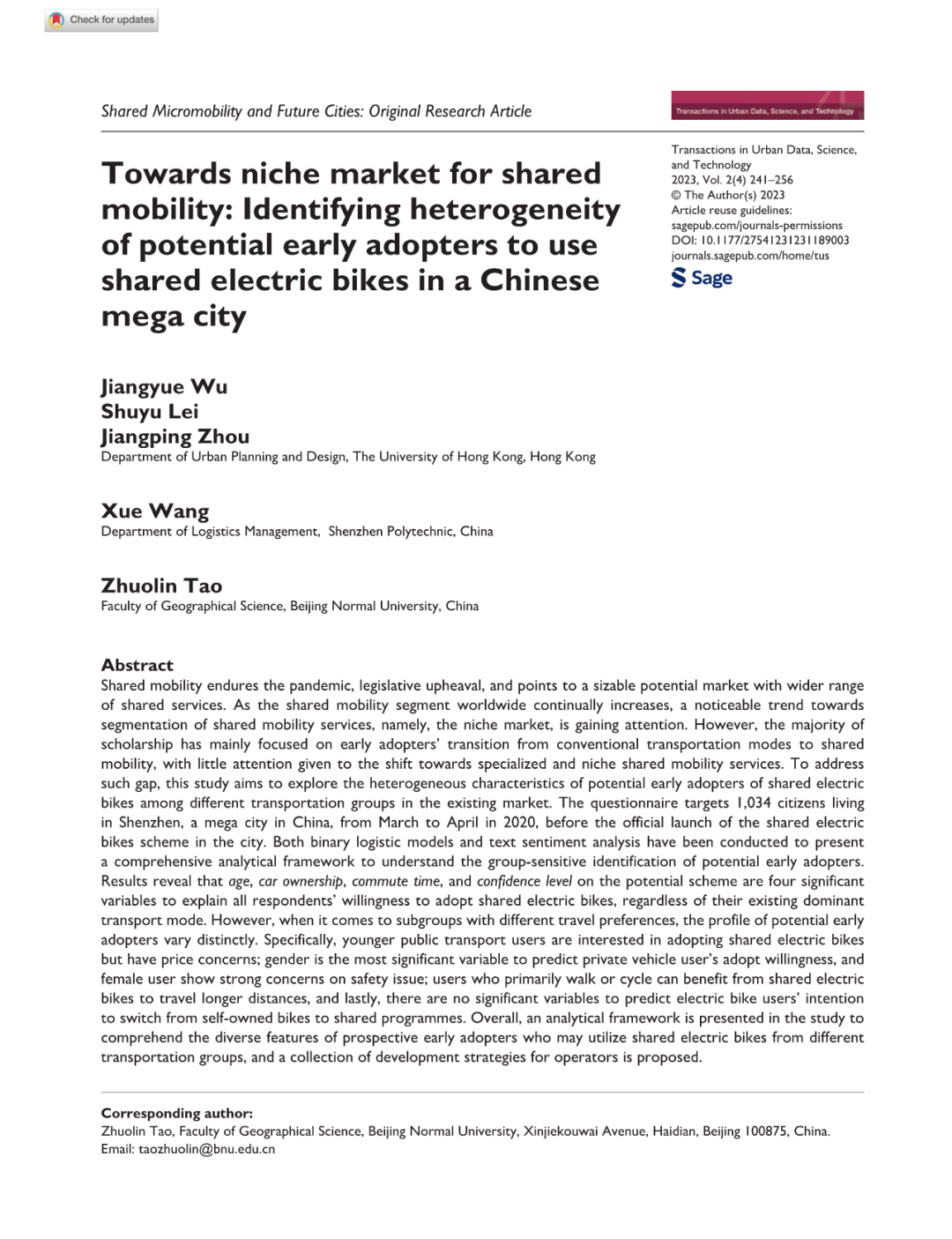
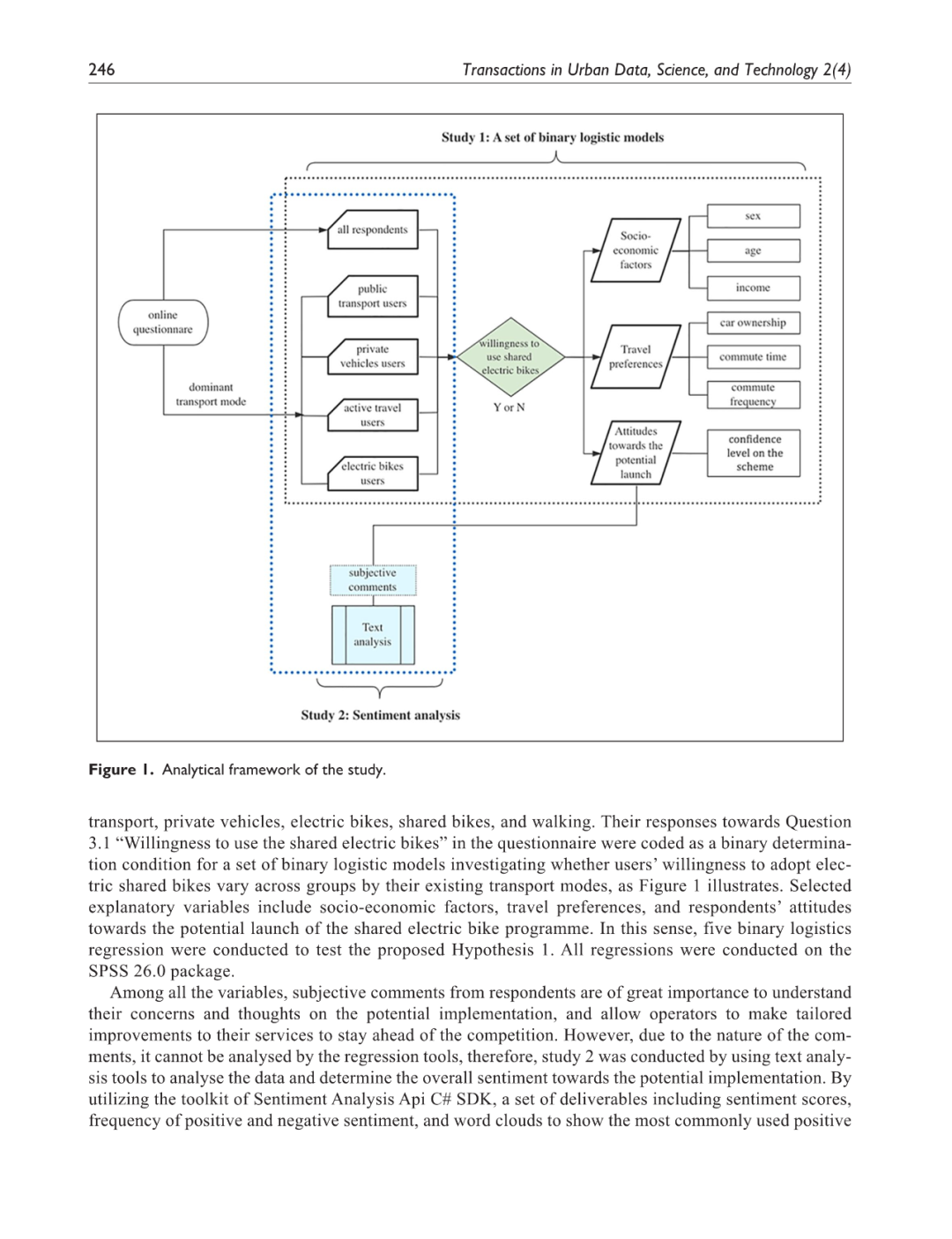
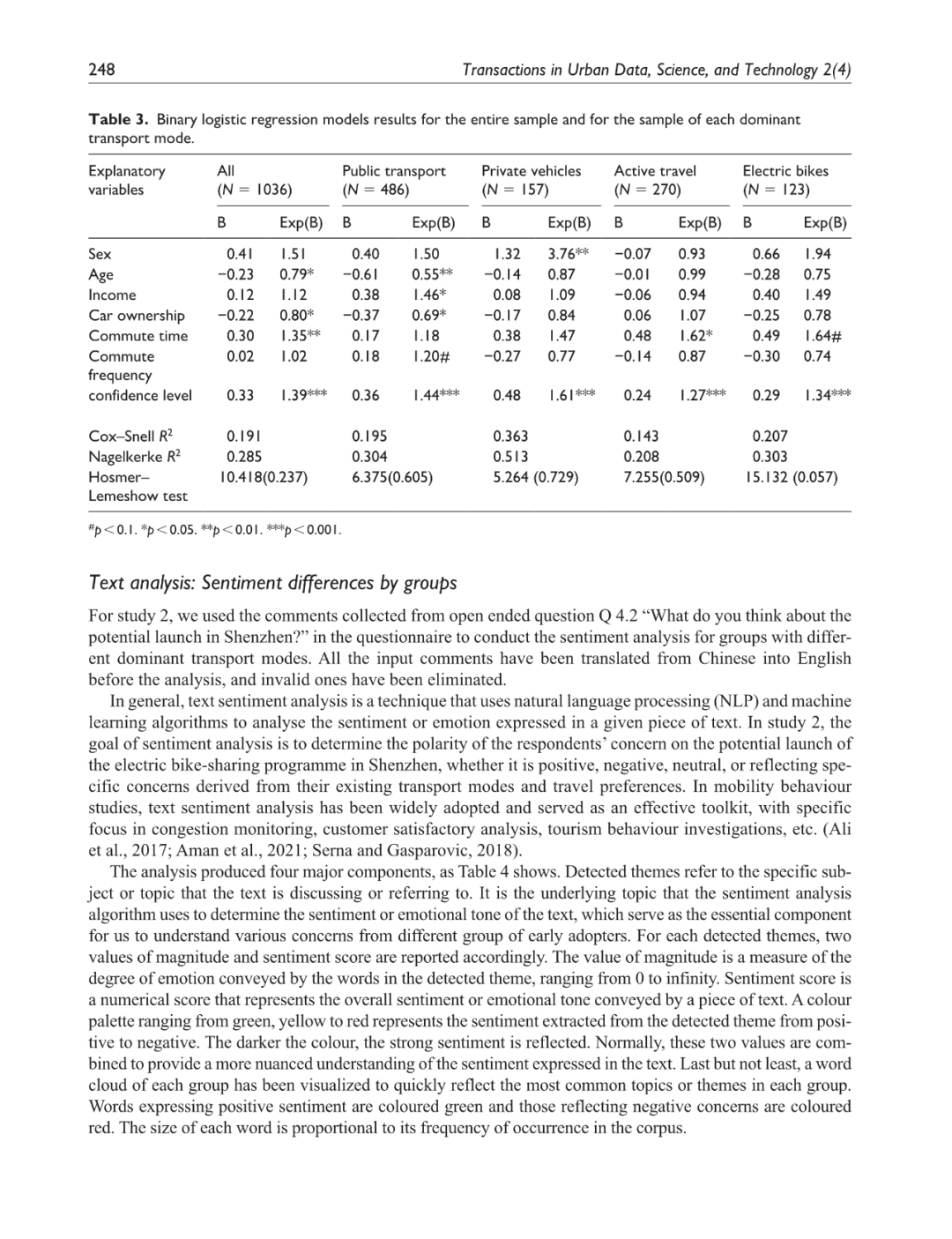
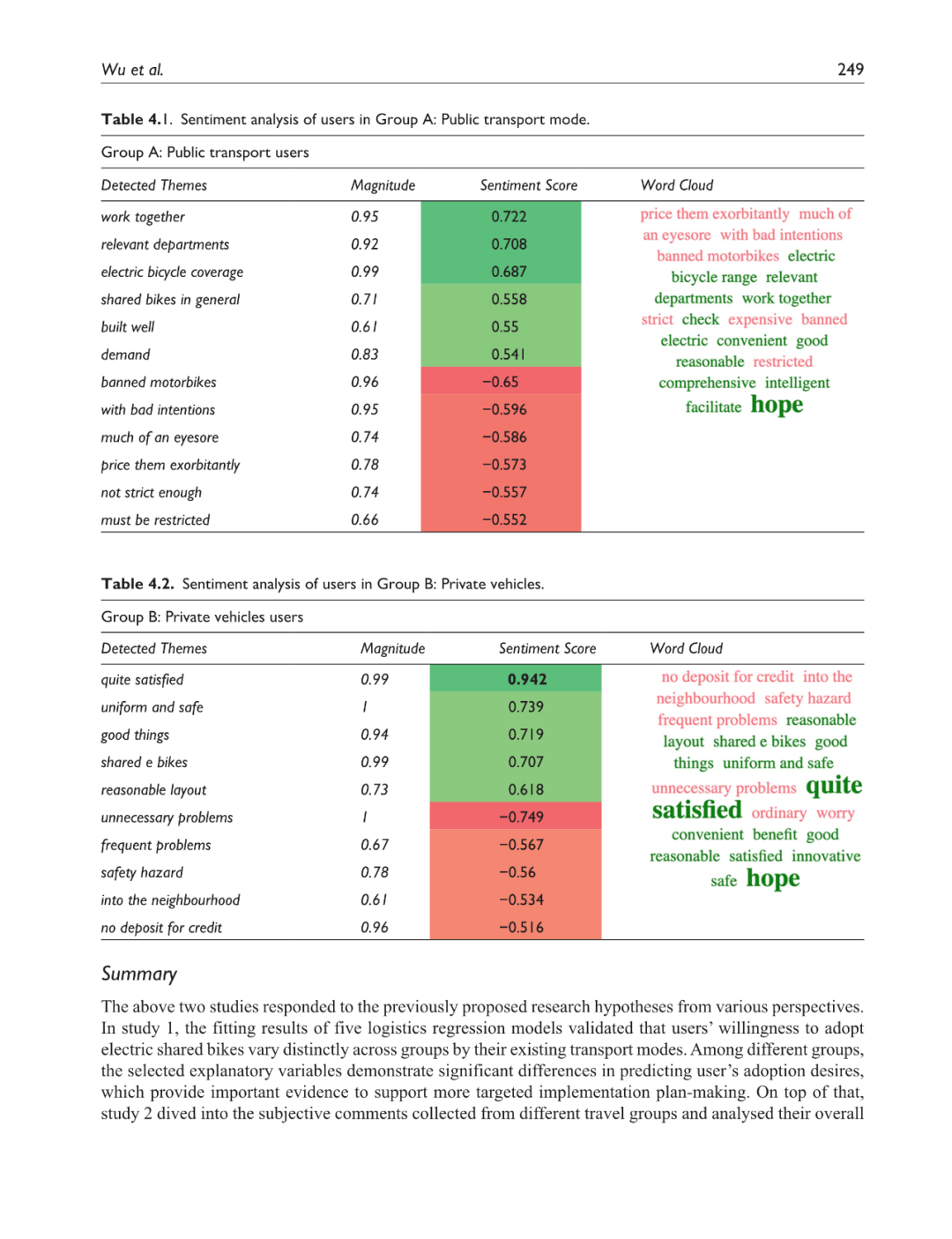
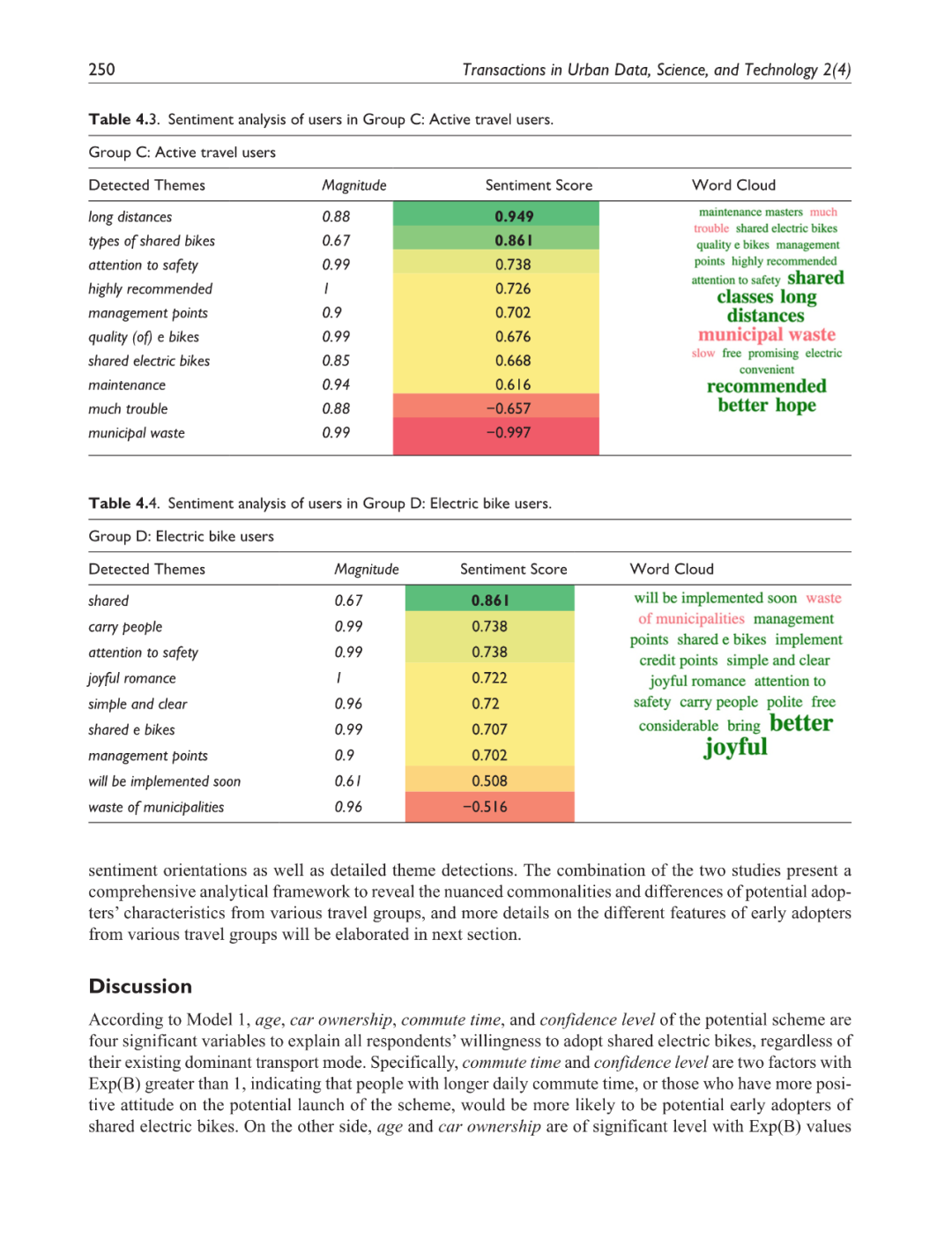

 规划问道
规划问道









